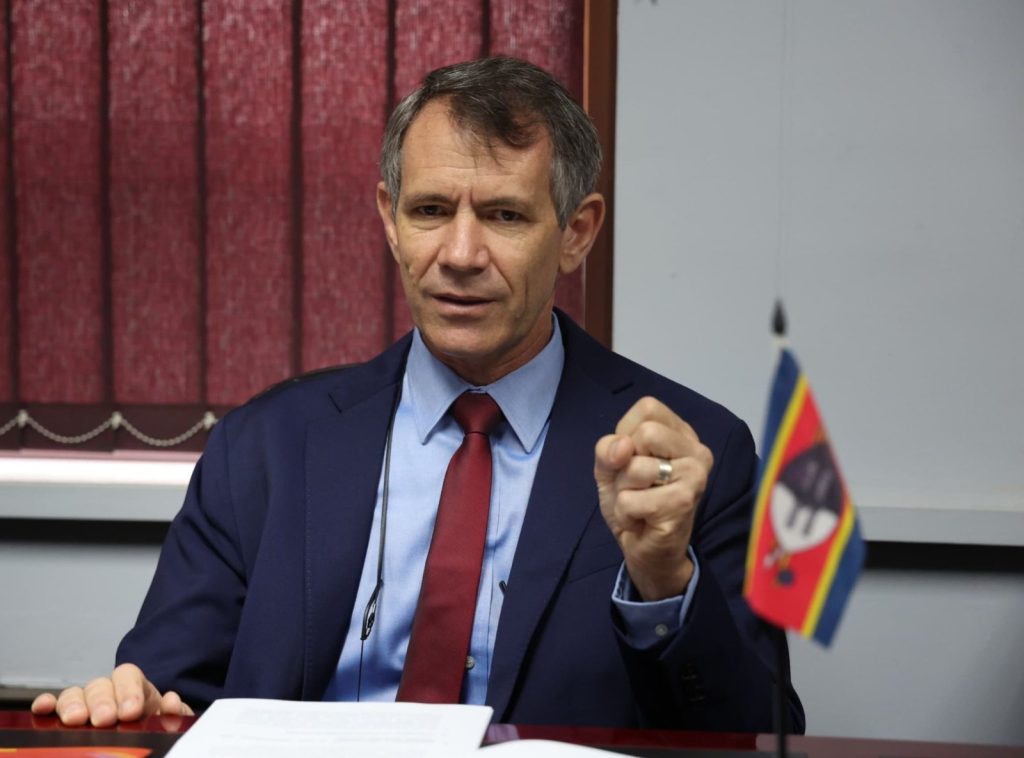
By Sizwe Dlamini
The decline in the Southern African Customs Union (SACU) receipts has not led to a national budget decrease as most had anticipated.
This year’s budget tabled by the Minister of Finance, Neal Rijkenberg saw a remarkable 11% increase, from E29.4 billion in the 2024/25 financial year to E32.61 billion for the 2025/26 period.
This increase is largely attributed to strong growth in Eswatini’s Gross Domestic Product (GDP), with the nation entering new economic territory not seen in over three decades.
Speaking during a media briefing before descending to Parliament, the Minister highlighted that the kingdom is experiencing growth rates reminiscent of the early 1990s.
“The kingdom is experiencing growth rates reminiscent of the early 1990s when South Africa was under the weight of international sanctions. The current growth signifies the positive trajectory of the country’s economy. We project GDP growth rates of 8.3% in 2025, following a 5% growth in 2023 and an anticipated 4.8% growth in 2024. This substantial increase marks a new phase of economic development for the kingdom,” he said.
Despite the optimistic projections, the Minister cautioned that the kingdom is not yet in a state of economic promise.
“While we are experiencing a shift in our growth trajectory, poverty and unemployment remain our two biggest challenges,” Rijkenberg said. He stressed that economic growth alone will not be enough to address these issues, emphasizing the need for continued investment in social programmes and job creation.
One of the key factors contributing to the budget increase is the success of the Eswatini Revenue Service (ERS), which has played a vital role in boosting national revenue.
The ERS exceeded expectations, raising E16.5 billion, up from E14.5 billion the previous year. This remarkable increase in revenue generation highlights the government’s effective tax collection measures.
The Minister pointed out that the improved revenue collection is vital for addressing the kingdom’s financial needs, particularly in terms of expanding social services and investing in infrastructure.

Rijkenberg added that the national budget is made up of two primary components: the recurrent budget and the capital budget.
“This year, the government has made a deliberate effort to increase the capital budget, which is essential for creating the infrastructure that supports sustained growth. While the recurrent budget will see a growth of 8.7%, it is the capital budget that holds the key to unlocking long-term development. Investments in infrastructure, technology, and public services will create a solid foundation for future economic growth,” he concluded.
